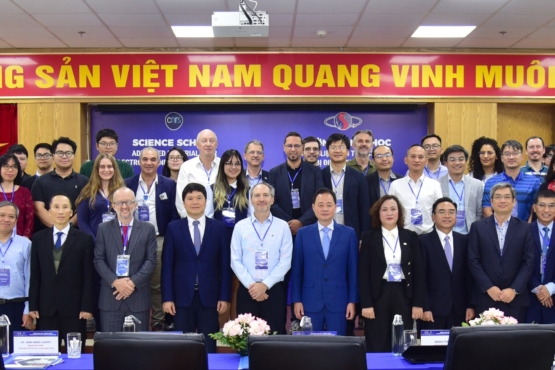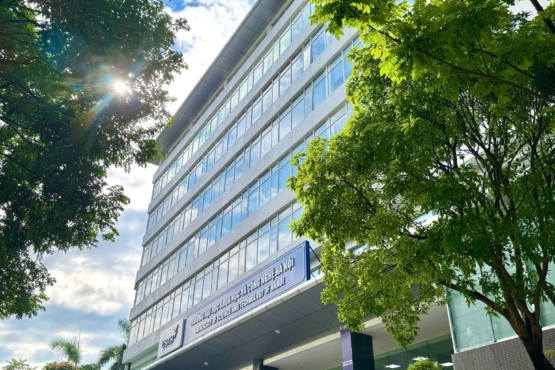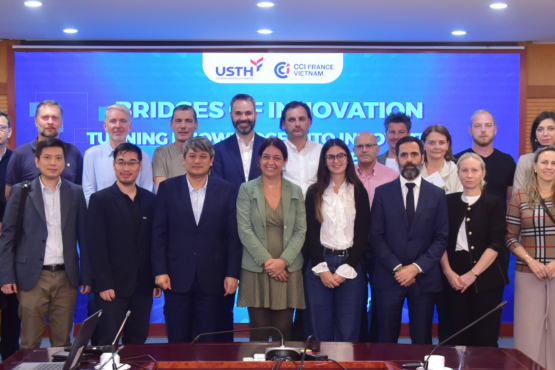On Aug 23, 2023, Prof. Gia Khanh Pham, from Department of Applied Sciences and Mechatronics, Munich University of Applied Sciences visited USTH and held a seminar on “3D Printing of Metals and Ceramics”.
At the beginning of the seminar, on behalf of the USTH Rector Board, Assoc. Prof. Tran Dinh Phong – Vice Rector of USTH extended his warm welcome to Prof. Gia Khanh Pham and highly regarded the collaboration between USTH and Munich University of Applied Sciences in terms of training and research.
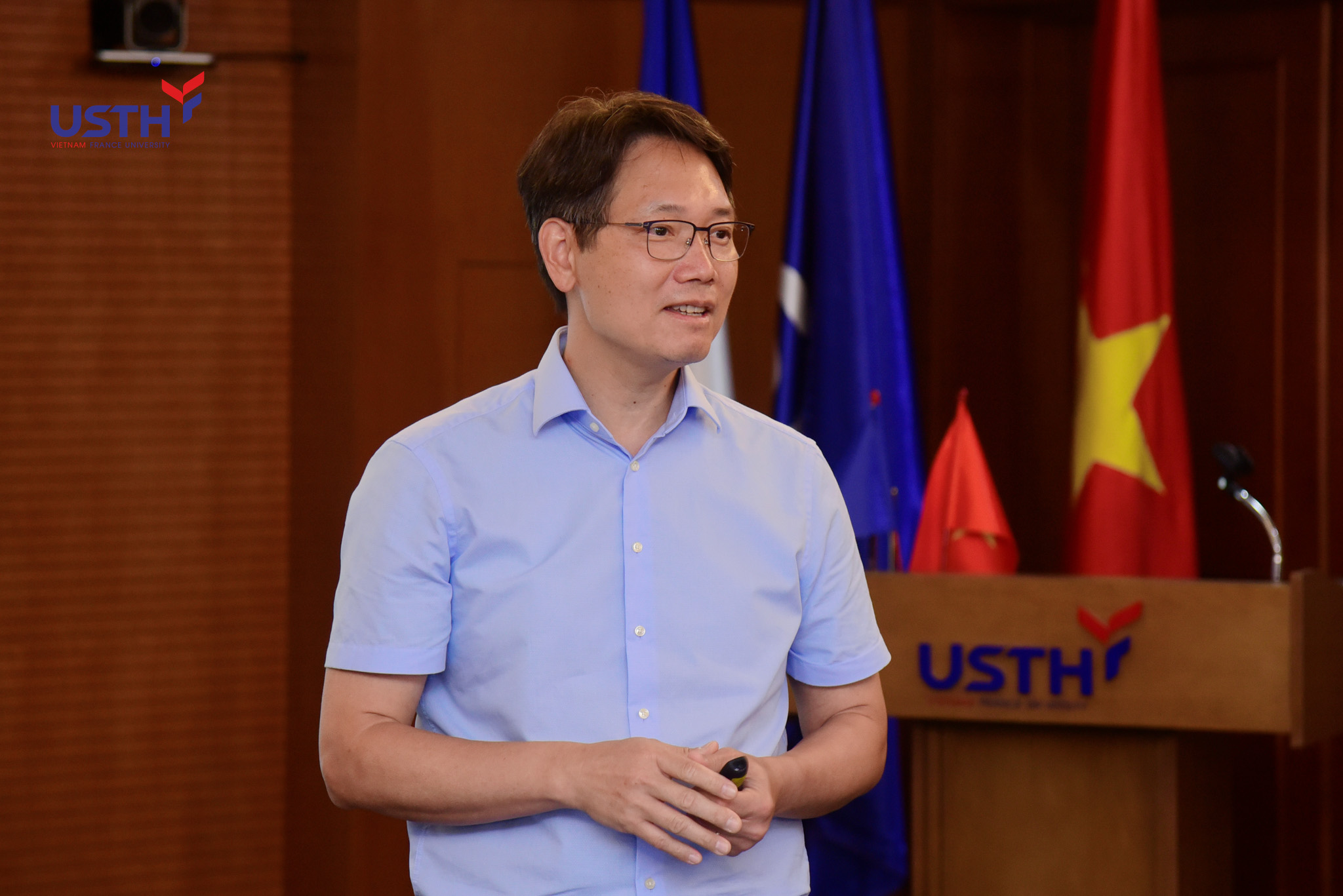
In March 2023, USTH signed an MOU with Munich University of Applied Sciences to provide exchange and research cooperation opportunities for students and lecturers in both universities thanks to the connection of Prof. Gia Khanh Pham. In June 2023, the delegation of USTH visited Munich University of Applied Sciences and met the representatives of its academic departments and its Rector Board to discuss the detailed implementation of the signed MOU.
The visit of Prof. Gia Khanh Pham to USTH was within the framework of collaboration between the two universities.

Prof. Gia Khanh Pham specializes in the fields of Materials Technology, and Technology & Innovation Management. His research focuses on material engineering, with a particular emphasis on 3D printing of ceramics and metals. He had years of working experience as a senior engineer and project manager at Siemens Corporate Technology in Munich (Germany) and Charlotte (NC, USA). He boasts an impressive portfolio of 43 patents. His expertise lies in diverse areas including ceramic matrix composites for gas turbines, scintillators & radiation detectors for medical imaging (CT, PET), luminescent materials for LEDs, and transparent opto-ceramics for optical applications.
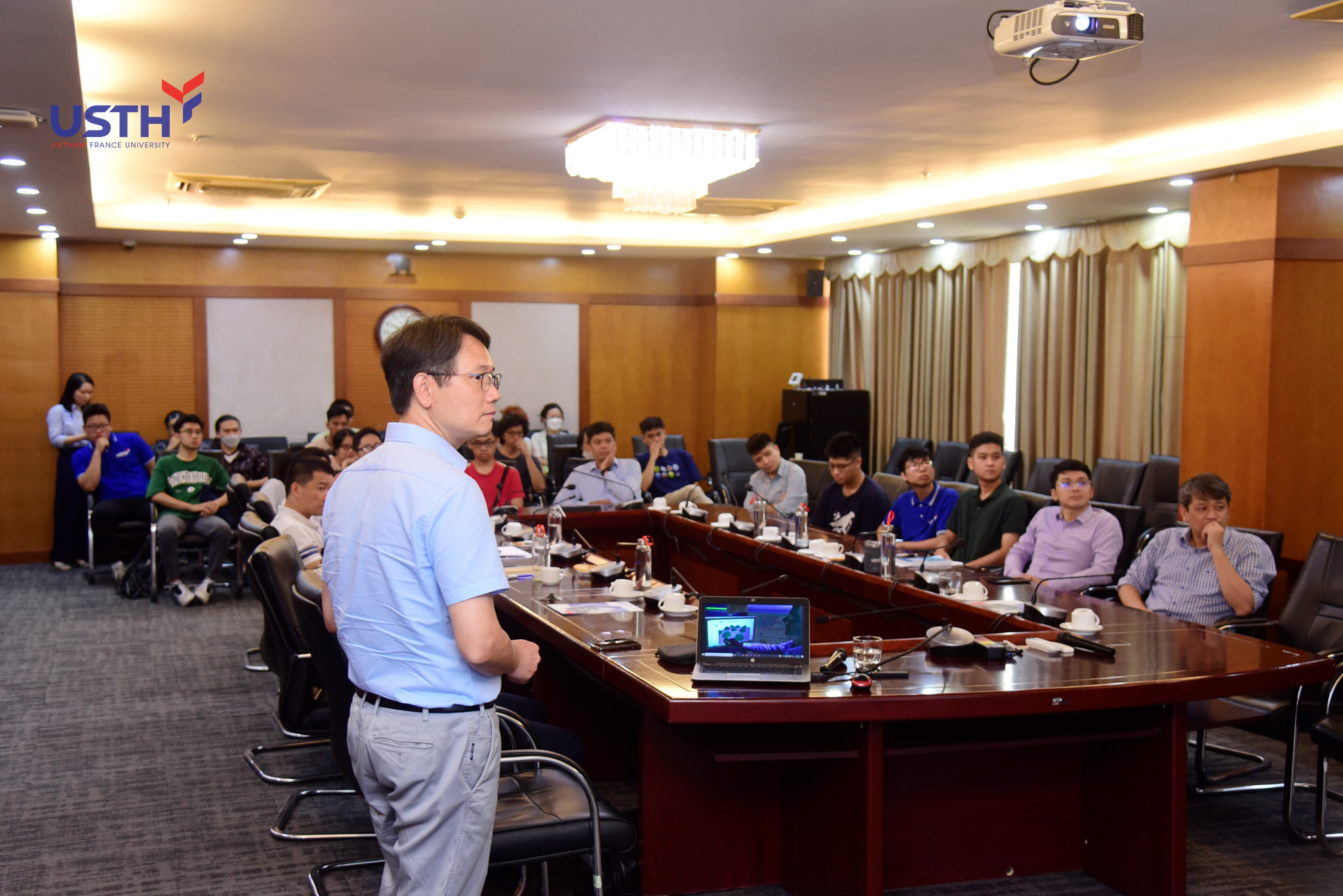
During the seminar, he provided an insightful overview of current 3D printing technologies and their potential applications. He also presented captivating findings of material research and development for major 3D printing technologies for metals (Ti-alloy, Al-alloy, steel) and ceramics (Al2O3), e.g. Laser Powder Bed Fusion (LPBF), Fused Filament Fabrication (FFF), and Digital Light Processing (DLP). Furthermore, his presentation includes actionable recommendations and conclusions regarding the 3D printing of metals and ceramics.

According to Prof. Gia Khanh Pham, the rapid evolution of 3D printing technologies and the subsequent emergence of innovative products are propelling remarkable growth within the 3D printing industry. The application of 3D printing to inorganic materials, especially metals and ceramics, plays an important role in different sectors automotive, manufacturing, aerospace & defense, healthcare, and electronics. The beneficial mechanical, chemical, electrical, and thermal properties of metals, metallic alloys, and ceramics enable a broad range of new industrial applications, especially at high temperatures and under extreme load conditions.
Material engineering considerably contributes to the success of additive manufacturing technologies. Therefore, a comprehensive understanding of both materials and manufacturing processes, including post-printing treatments, serves as a fundamental prerequisite for upholding elevated product quality and ensuring production reliability.
After the presentation, Prof. Gia Khanh Pham addressed the questions from the participants and thanked them for attending the seminar.




